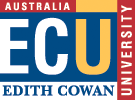COURSE INFORMATION
Disclaimer
This course information may be updated and amended immediately prior to semester. To ensure you have the correct outline, please check it again at the beginning of semester.
| M89 Bachelor of Science (Exercise and Sports Science) | ||||||||||||||||||||||||||||||||||||||||||||||||||||||||||||||||||||||||||||||||||||||||||||||||||||||||||||||||||||||||||||||||||||||||||||||||
This course prepares students for professional roles in a variety of positions in the private, corporate and government sectors which require personnel with high levels of competence in the area of Exercise and Sports Science. Graduates have successful careers in speciality areas such as exercise rehabilitation, sports administration, physical education teaching, sports coaching, exercise science and strength and conditioning. Nutrition, health promotion, human performance, human biology, sports management, occupational health and safety are available to be studied as supporting majors, minors and electives. The Australian Association of Exercise and Sports Science (AAESS) professional accreditation is also available to be studied as a supporting major. Following completion of both this degree and AAESS supporting major students may gain accreditation as an 'Exercise Scientist' and membership with AAESS. Course Duration: 3 years full-time or part-time equivalent.
Students specialising in Exercise and Sports Science must complete sixteen core units (240 credit points) in Sports Science. In addition, they must complete eight units (120 credit points) by selecting one of the following eight unit sequences:
1. An eight unit supporting major from a selected area.
2. A six unit minor study (from a selected area) plus two electives.
If students are considering entry into the fourth year AAESS Accredited Bachelor of Science (Exercise Science and Rehabilitation) degree, they must complete both the Bachelor of Science (Exercise and Sports Science) degree plus the AAESS 8 unit Supporting Major. The Exercise Science and Rehabilitation degree enables graduates to gain accreditation as an 'Exercise Physiologist' through AAESS (see www.aaess.com.au). |
||||||||||||||||||||||||||||||||||||||||||||||||||||||||||||||||||||||||||||||||||||||||||||||||||||||||||||||||||||||||||||||||||||||||||||||||
| ADMISSION REQUIREMENTS Standard university admission requirements. |
||||||||||||||||||||||||||||||||||||||||||||||||||||||||||||||||||||||||||||||||||||||||||||||||||||||||||||||||||||||||||||||||||||||||||||||||
| COURSE LOCATION This course is available on Joondalup Campus. |
||||||||||||||||||||||||||||||||||||||||||||||||||||||||||||||||||||||||||||||||||||||||||||||||||||||||||||||||||||||||||||||||||||||||||||||||
| MODE OF STUDY This course is available by Full-time, or Part-time mode. |
||||||||||||||||||||||||||||||||||||||||||||||||||||||||||||||||||||||||||||||||||||||||||||||||||||||||||||||||||||||||||||||||||||||||||||||||
| MODE OF DELIVERY This course is available in the following mode of delivery - On-campus. |
||||||||||||||||||||||||||||||||||||||||||||||||||||||||||||||||||||||||||||||||||||||||||||||||||||||||||||||||||||||||||||||||||||||||||||||||
| COURSE STRUCTURE The course consists of 240 credit points (16 core) Exercise and Sports Science units, plus an eight unit Supporting Major or six unit Minor, plus two Electives – 120 credit points (8 units). To complete the degree students must achieve a total of 360 credit points. |
||||||||||||||||||||||||||||||||||||||||||||||||||||||||||||||||||||||||||||||||||||||||||||||||||||||||||||||||||||||||||||||||||||||||||||||||
| ||||||||||||||||||||||||||||||||||||||||||||||||||||||||||||||||||||||||||||||||||||||||||||||||||||||||||||||||||||||||||||||||||||||||||||||||
Last Updated - Higher Education: 3/31/2010 VET: 3/31/2010
